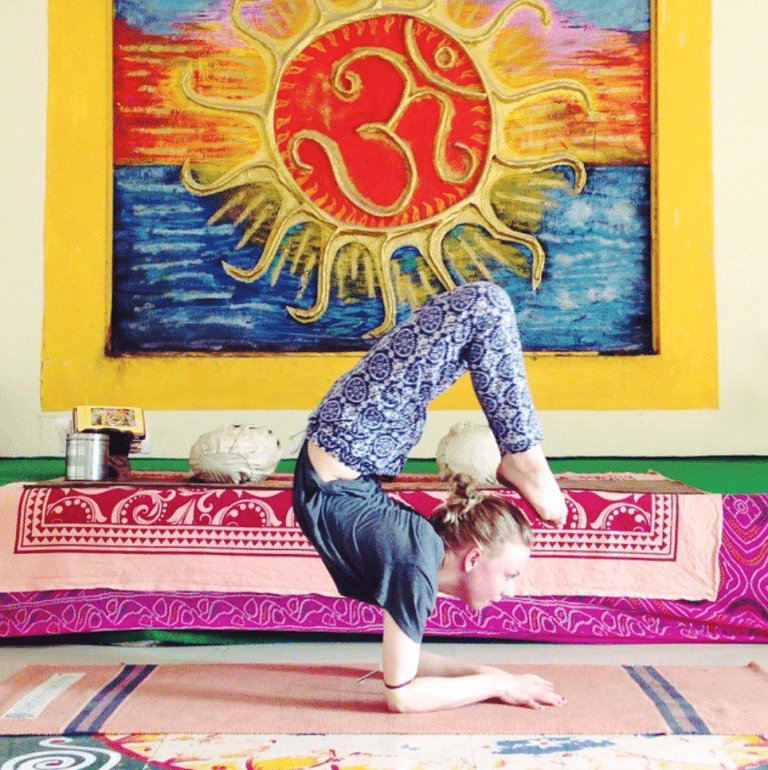What Do You Call a Person Who Practice Yoga? A Yogi!
So, before I was a homesteader, I was a yogi. I went to India for yoga teacher training when I was 24 and came home pretty devoted to the practice. During the training, we spent equal time practicing the physical postures and sequences, studying yogic philosophy, and meditating. And it was sort of… life-changing. Read on to find what other things you call a person who practice yoga.
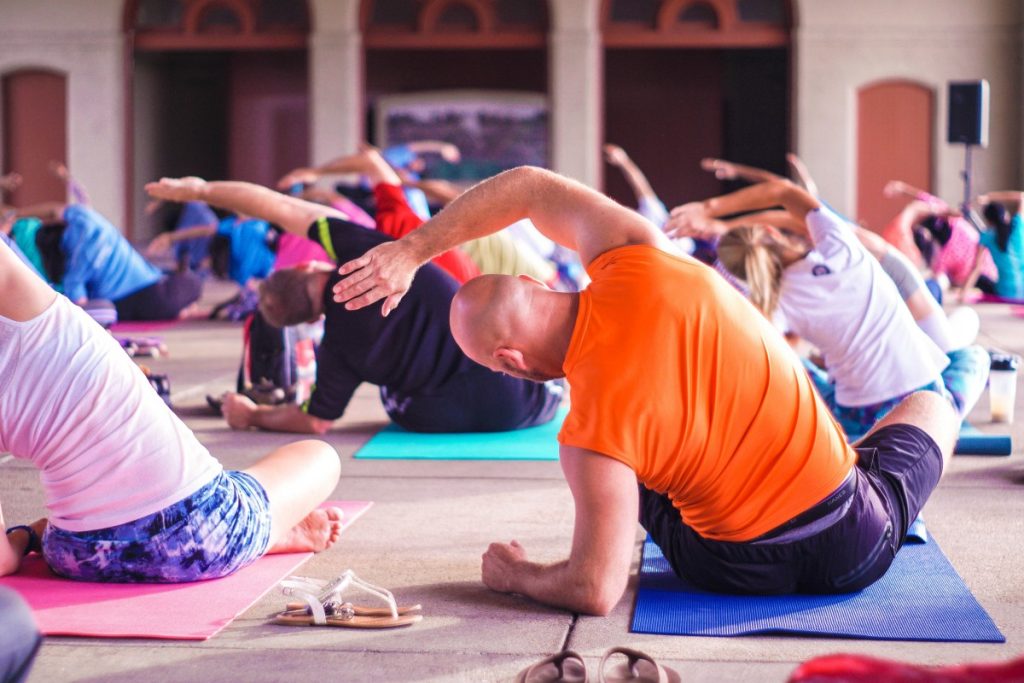
Let’s rewind it back
At 24 I had extensions, and fake nails, worked as a waitress at a strip club, and was making music in my bedroom to deal with heartbreak and a chaotic mind. My neighbor was a prostitute who welcomed clients at home. I hardly slept, drank laxative tea to lose weight, and was sleeping with my boss while looking for a husband on Tinder.
With time and some pretty wild coincidences (like getting deported from the United States), I ended up back home in the small town I swore I’d never move back to. I discovered yoga as a way of managing my feelings and connecting to a community, but also as a potential income source.
There was a thriving yoga community on Instagram back then. Yogis around the world collaborated on challenges that involved practicing and posting daily yoga poses. It wasn’t quite like regular yoga practice, but it was just what I needed to fall in love with the physical part of yoga.
One day I received some unexpected money and by the end of the next day, I had already signed up for a yoga teacher training and booked my ticket to Indore, India. That’s when I started learning about yoga as a spiritual practice and began opening my mind up to the value of an introspective lifestyle.
What is Yoga
This is the million-dollar question, isn’t it? The word yoga is a Sanskrit word meaning “to unite”. The very simple and for the most part sufficient answer to what yoga is would be something like “an ancient practice originating in India more than 5000 years ago”.
However, yoga today is many things. Modern yoga in the Western world mostly involves physical poses (asanas) and breathing techniques (pranayama). The popularization of yoga has resulted in a vast selection of unconventional practicing methods. There are different types of yoga classes designed for absolutely everyone. You can do goat yoga, plus size yoga, SUP, hotpod, swing, and laughing yoga. Even beer yoga!
Now, if you’re an aspiring yogi it might be tempting to start dissecting these styles and question their viability. Remember though, the practice of non-attachment taught in traditional yoga also applies to the terminology.
Non-attachment means developing a sense of inner freedom and detachment from things, people, and circumstances. Yogis learn to accept things as they are without clinging to them or being overly affected by them by practicing non-attachment. Guru ji, in his fantastic Indian accent, told us that we “are allowed to own an expensive telephone. But your world should not collapse when it is stolen.”
What I’m Saying Is
Anyways, these modern variations of yoga are valid in their efforts to introduce people to something that might seem very unfamiliar and even scary at first. A fancy yoga class is a great way to get the most unlikely person onto a yoga mat. They are also great initiatives for inspiring a healthy lifestyle. As I’m sure you already know, regular physical activity has numerous positive side effects that are supported by evidence-based research.
That modern view was my point of entry to yoga. However, during my time in India, I glimpsed yoga in its native context. From an ancient Indian perspective, yoga and Hinduism are deeply interconnected. There, people view the practice of yoga as spiritual and inseparable from ancient India’s religious and philosophical teachings. They see yoga as a path toward self-realization, spiritual enlightenment, and union with the divine.
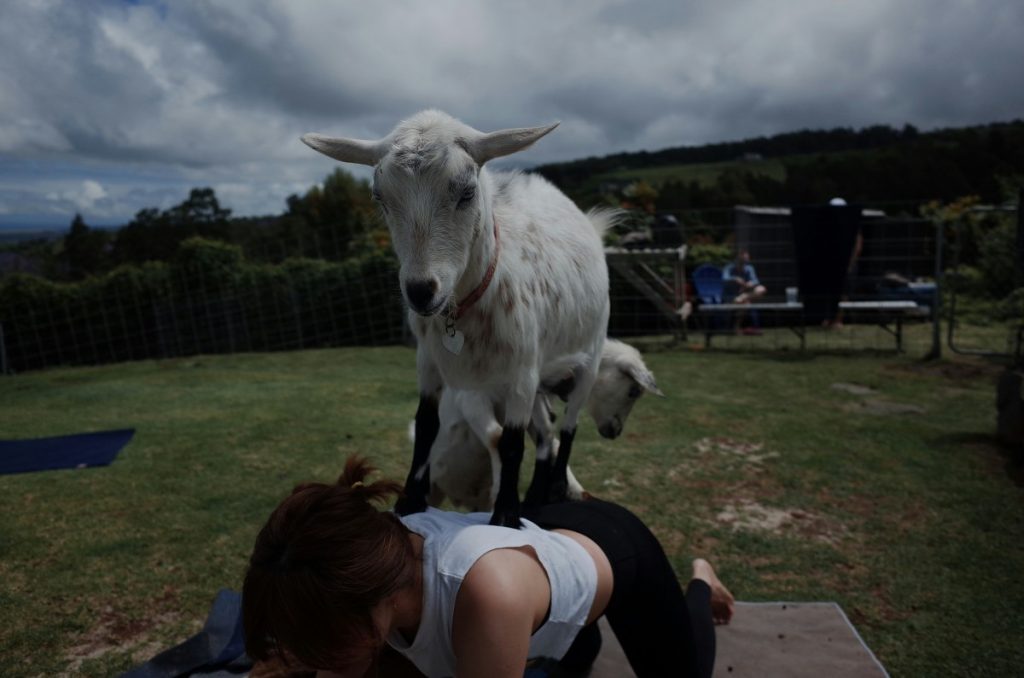
But what if you’re not Hindu?
Some Christians are hesitant to practice yoga because they believe it is a religious practice that goes against their beliefs. Personally, I think a practice is only religious if the practitioner intends it to be. Your intentions matter. The sequence of exercises your physical therapist created for you could have been taken straight from yoga. That doesn’t mean that you are practicing Hinduism. It just means that your therapist is taking advantage of thousands of years’ worth of knowledge about human anatomy and physiology to treat your lower back pain or high blood pressure.
Yoga and mental health
Ancient yoga is ancient yoga. Modern yoga over here is something else. Designed to fit the busy, restless, and sometimes unsettled or searching ways of an increasing amount of people in our Western culture. Mental health struggles look very different around the globe.
Although we’re currently facing epidemic rates of child and adolescent health disorders I try to remain optimistic in my belief that these struggles are in fact to a large degree avoidable. I have faith that when it’s gone far enough (sadly), we will open our eyes and be able to make the very hard but necessary changes to reestablish naturally healthy mental well-being.
But what is a true yogi really?
As mentioned earlier, yoga means union, to unite. A yogi is someone who is working to unite the spiritual and the physical to attain enlightenment and self-realization. Or at the very least come a little closer to the true self. A Western-style yogi will typically have a very regular practice and actively work to integrate yogic habits into daily life.
The path of yoga is as diverse as people are. I teach yoga (regularly), meditate (irregularly), and try to incorporate yogic habits into my everyday life. I consider myself to be a yoga practitioner and I will use the word yogi affectionately and maybe aspirationally.
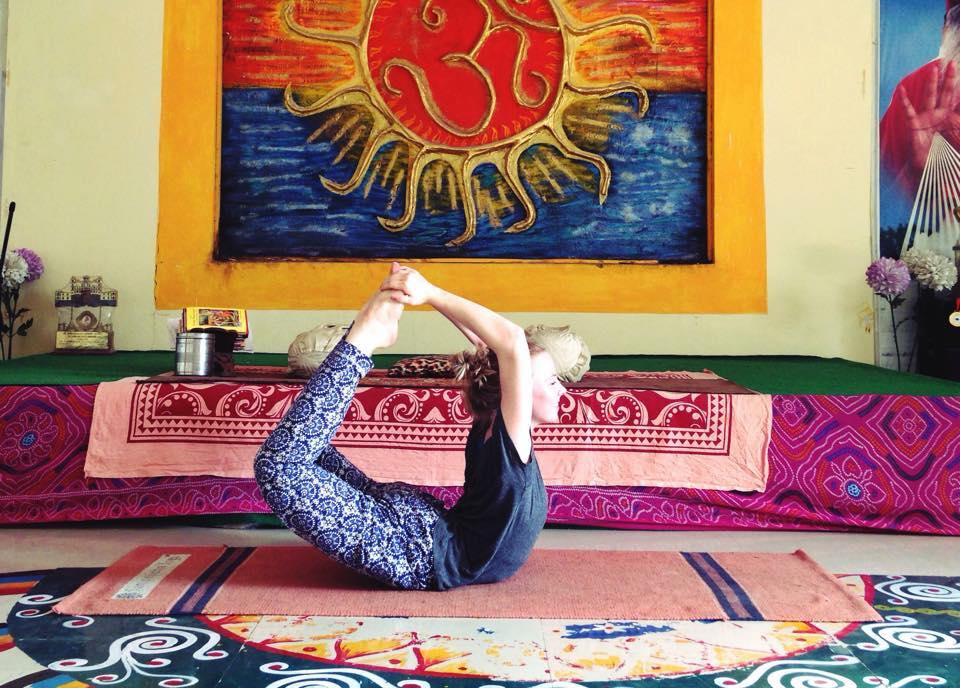
How to become a yogi (or yoga practitioner)
Together with a small group of devoted yoga students, I completed my international yoga teacher training and became a certified yoga instructor and yoga therapist at Paramanand Yoga.
The training incorporated asana practice, breathing exercises, meditation, and the study of philosophical principles as well as quite a bit of ancient medicine (Ayurveda). We trained to look at the person holistically to promote overall well-being and spiritual growth.
I was lucky to quite randomly stumble into a very traditional ashram. I didn’t have a lot of money so I chose the cheapest training I could find. It also happened to be incredibly thorough and authentic. Today people consider it one of the very best yoga schools in the country. All the regular teachers were Indian and absolutely dedicated to the mission of the ashram.
The ashram itself is a safe, secluded property encompassing the yoga therapy center and academy, an eye hospital, a retirement home, and a farm. Each of these projects specifically aims to assist underprivileged and vulnerable members of the community and is completely free of charge.
But what do you call a person who practice yoga?
A Born Guru
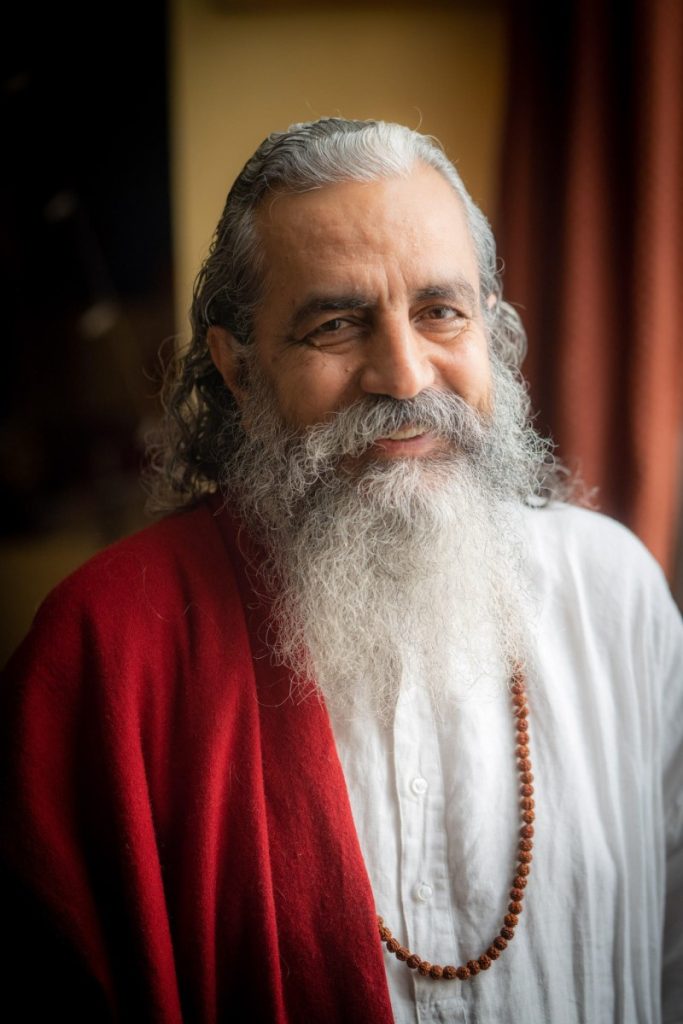
The most significant thing about my training though is that it happened under the watchful and loving eye of a true Guru. Dr. Omanand Guruji a born Yogi, one of the chief disciples of Yugpurush Mahamandleshwar Swami Shri Paramanand Giriji Maharaj. You can read more about Guru Ji here.
One evening we were all about to go to bed when one of our teachers told us to put on our ashram t-shirts and come to the community hall. A minister of state was traveling through Indore and stopped by the ashram to converse with Guru Ji about things I could hardly understand. She was also there to connect with him as a fellow disciple of Swami Shri Paramanand Giriji Maharaj.
An entourage of assistants, security, and advisors surrounded her. It all felt like a very big deal. In India, political leaders are also spiritual leaders. And they talk like it. Every other sentence is some gem that feels like a revelation of some kind. She spoke with enthusiasm, conviction, and sensitivity, captivating our attention even though we only grasped fragments of what she was saying.
But really, what do you call a person who practice yoga?
What Do You Call A Person Who Practice Yoga? A Guru?
Guru is a yogi in the true sense of the word. An important difference between a Hindu yogi and a Hindu monk is that a yogi remains a part of society. Both are steadily working towards self-realization. The Guru lives his life, collects life experiences, and learns lessons to impart that wisdom and be a guide in navigating life. The monk dedicates his existence entirely to spiritual practices and the pursuit of enlightenment, mostly in isolation.
Now, a monk is a yogi and can be a Guru. Some monks are called to step out of their monastic life to share their wisdom, teachings, and spiritual guidance with society and can be considered Gurus.
To recap, a guru is someone who has attained spiritual knowledge and wisdom through their practices and experiences and shares that knowledge with others to help them on their spiritual path. Whether they are living a monastic life or actively engaging with society, their role as a spiritual teacher and a guide remains the same.

Back To The Modern-Day Yogi
We are all fascinated with beautiful people moving their bodies in seemingly impossible ways. This fact propelled yoga to stardom with the rise of social media. In Indian culture, yoga is widely recognized and readily accessible as a first-line treatment option for the general public. Kids start their day with a sun salutation in public schools. But in the West, the popularization of yoga has turned it into a thriving multi-million-dollar industry.
The widespread adoption of yoga worldwide has resulted in a surge in the demand for yoga classes, yoga retreats, teacher training programs, apparel, and accessories. Yoga pants have become a symbol of comfort and style, fueling the multi-billion-dollar athleisure industry.
Although this popularization of yoga has not only been positive there’s no denying that it has resulted in a lot of positive outcomes. People all over the globe are using yoga for stress management and to treat anxiety disorders. People are engaging in physical activities, learning to listen to their bodies, and diving into meditation practices. Whether they’re taking a hatha yoga class for ease of movement or exploring kundalini yoga to revive intimacy people are learning about an ancient culture and it’s incredible ability to bring the mind back to the present.
Let’s Conclude Shall We?
So what do you call a person who practice yoga? Well, a yoga practitioner, a yogi, a guru, a monk. It depends. Personally, the word yogi connected me to the practice. It helped me feel like I belonged.As my inner peace came closer to the surface I detached from the word. Now I am just a person who practices yoga.
I found that yoga helped me rid of some health conditions without even trying. It increased my overall health. Healthy eating and higher energy levels came without me consciously changing anything. So, let me just answer the question one more time. What do you call a person who practice yoga? Smart.
I’m in the process of writing a series of biographic short stories. I write these mostly because it’s enjoyable, but also because it feels like a good exercise in appreciating where I am now and how I came here. It turns out other people also think they’re enjoyable. If you want to have a read you can check them out here: But I looked so happy (part one) and But I looked so happy (part two).
I’m at war with AI and I can’t tell yet if I’m winning or losing. Please comment if you enjoy this post written by a real life human being <3 And lift your eyes today. Meet someone’s gaze. Ask them how they are. Love Trine Marie.


